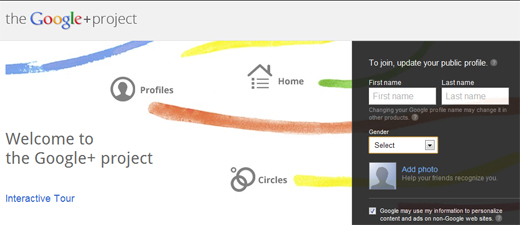Google+’s new “real name” policy has been brewing quite a controversy lately. Functioning as a trial run social networking site, Google+ is what the New York Times calls Google’s largest attempt yet at rivaling Facebook.
The new service, which launched only weeks ago, requires anyone who signs up to submit their real birth name to the website. And some of those who haven’t and got caught, have had their accounts suspended. Fewer have had all their Google accounts terminated. This is perhaps no big deal for a trial run website which hasn’t exactly taken off yet- but the policy has certainly raised questions and a fair amount of criticism.
In the name of “community standards,” Google+ is backing up their strict policy, claiming that a real identity is necessary. This might sound familiar, since Facebook had somewhat enforced a similar idea, but it seems that people are aware that they can get away with a pseudonym on Facebook now if they want to. Many of us are probably even friends with a pet.
However, pseudonyms have more functionality for people on the Internet than serving as mere entertaining aliases- anonymity online is becoming increasingly important in a world where privacy is quickly diminishing. Pseudonyms also provide excellent protection to those who may be marginalized with association to their true identity. Artist Molly Crabapple wrote a short piece on what her name means to her. But our Western concerns of privacy pale in comparison to those of activists and dissenters of government in countries where voicing certain opinions are not permitted, and can be cause for arrest or even human rights abuses.
NPR’s Andy Carvin has been doing some intense work this year regarding uprisings in Libya and Syria where dissident activists rely on pseudonyms to protect their identities from oppressive regimes. In such circumstances, revealing their true name could have devastating consequences. In light of this issue, Carvin asked Google Executive Eric Schmidt if he thinks such a policy is justified. His paraphrased response is as follows:
He replied by saying that G+ was build primarily as an identity service, so fundamentally, it depends on people using their real names if they’re going to build future products that leverage that information.
Regarding people who are concerned about their safety, he said G+ is completely optional. No one is forcing you to use it. It’s obvious for people at risk if they use their real names, they shouldn’t use G+. Regarding countries like Iran and Syria, people there have no expectation of privacy anyway due to their government’s own policies, which implies there’s no point of even trying to have a service that allows pseudonyms.
He also said the internet would be better if we knew you were a real person rather than a dog or a fake person. Some people are just evil and we should be able to ID them and rank them downward.
Perhaps there are other ideas within Google about the issue. Here’s Google’s VP of Product Management, Bradley Horowitz talking to Tim O’Reilly:
It is hard to believe that Google+ is truly concerned with identity as much as they are with something else. The fact is that a real name policy has very little to do with identity, and much to do with supporting advertisers who will find personalized information associated with REAL names vastly more appealing than some alias. It is likely that akin to Facebook’s strategy, targeted advertising is in store for the future. But, as Google has wisely noted: it’s your choice to sign up or not!
Claire Lumiere





as you say Ms ClearLight, this has very little to do with accountability and a lot more to do with turning your identity into a commodity